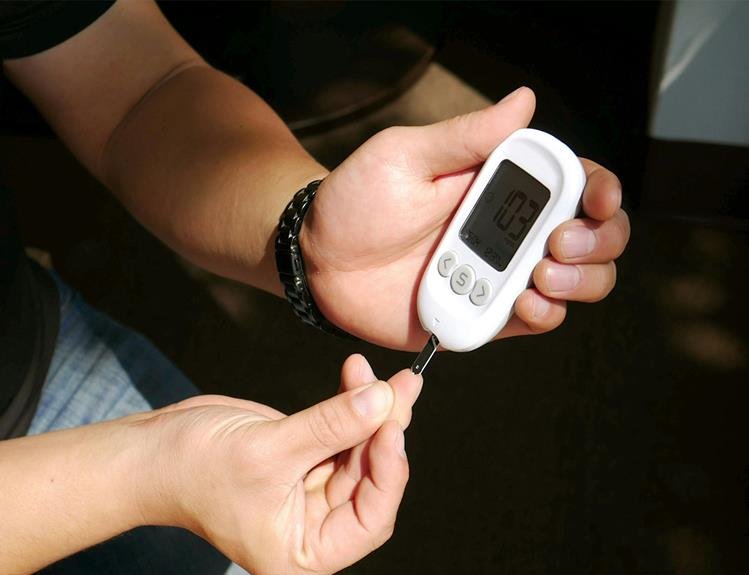side effects of diabetes medication
Diabetes is a chronic disease affecting millions of individuals worldwide. It is characterized by high levels of glucose in the blood due to either the body’s inability to produce enough insulin or its inability to use the produced insulin effectively. The main goal of diabetes management is to keep blood sugar levels within a healthy range to prevent complications. Medications are commonly prescribed to achieve this goal, but like all medications, they may come with potential side effects. These side effects can range from mild discomfort to serious complications that can impact an individual’s quality of life. It is essential for individuals with diabetes to be aware of the potential side effects of their prescribed medication and to communicate with their healthcare provider if they experience any adverse reactions. In this article, we will explore the side effects of diabetes medication, their causes, and the steps that can be taken to manage or prevent them. With proper knowledge and communication, individuals with diabetes can effectively manage their medication and minimize the impact of potential side effects on their daily lives.to end diabetes without medications click here
Potential risks of diabetes medications
When it comes to managing diabetes, medications play a crucial role in helping individuals control their blood sugar levels. However, it is important to be aware of the potential risks associated with these medications. Some common challenges that may arise include the risk of hypoglycemia or low blood sugar, weight gain, digestive issues such as nausea and diarrhea, and an increased likelihood of developing cardiovascular complications. Additionally, certain medications may have an impact on kidney function, liver health, and even increase the risk of bone fractures. It is essential for individuals to work closely with their healthcare providers to discuss the potential risks and benefits of diabetes medications, and to closely monitor any changes or adverse effects that may occur during the treatment process. By maintaining open communication and regularly evaluating the medication plan, individuals can minimize potential risks and optimize their diabetes management.
Managing side effects with care
It is crucial for individuals taking diabetes medications to manage and address any potential side effects with utmost care. Being proactive and taking appropriate measures can help minimize the impact of these side effects and ensure overall well-being. Firstly, maintaining open and regular communication with healthcare providers is essential. They can provide guidance and support in navigating any side effects that may arise. It is also important to closely monitor any changes in symptoms or adverse effects and promptly report them to the healthcare provider. They can then assess the situation and make necessary adjustments to the medication plan if needed. Additionally, adopting a healthy lifestyle, including regular exercise, a balanced diet, and adequate sleep, can help mitigate some side effects and support overall health. Lastly, engaging in self-care practices such as stress management techniques and seeking emotional support can also contribute to managing side effects effectively. By approaching side effects with care and addressing them proactively, individuals can optimize their diabetes management and ensure a better quality of life.
Nausea and vomiting common symptoms
Nausea and vomiting are common symptoms that individuals may experience while taking certain diabetes medications. These symptoms can be distressing and disruptive to daily life. It is important to recognize that these side effects can vary in severity and may differ from person to person. If you are experiencing nausea and vomiting as a result of your diabetes medication, it is crucial to consult with your healthcare provider. They can assess your specific situation and provide appropriate guidance and potential solutions. It is also important to stay hydrated and consume small, frequent meals to alleviate these symptoms. Additionally, avoiding triggers such as strong smells or certain foods can help minimize the occurrence of nausea and vomiting. Remember, managing and addressing these side effects is an integral part of your overall treatment plan for diabetes, and your healthcare provider is there to support you every step of the way.
Possible impact on blood sugar
Fluctuations in blood sugar levels can be a potential concern when taking diabetes medication. Certain medications may cause blood sugar levels to become too low, resulting in hypoglycemia. On the other hand, some medications may lead to elevated blood sugar levels, potentially leading to hyperglycemia. It is important to regularly monitor your blood glucose levels and work closely with your healthcare provider to ensure optimal management of your diabetes. They can provide guidance on adjusting medication dosages or exploring alternative treatment options if necessary. By closely monitoring and managing your blood sugar levels, you can minimize the potential impact on your overall health and well-being.
Weight gain and loss concerns
Weight gain and loss concerns are common among individuals with diabetes, as managing body weight is an integral part of maintaining optimal health. While weight gain can be a side effect of certain diabetes medications, it is essential to approach weight management in a holistic manner. Incorporating a balanced diet, regular physical activity, and monitoring portion sizes can help prevent excessive weight gain. Additionally, working closely with a healthcare provider or registered dietitian can provide valuable guidance and support in developing a personalized weight management plan that aligns with your specific needs and medication regimen. By maintaining a healthy weight, individuals with diabetes can improve blood sugar control and reduce the risk of complications associated with the condition.
Headaches and dizziness warning signs
Individuals taking diabetes medication should be aware of potential warning signs of headaches and dizziness. While these symptoms can arise from various factors, it is important not to dismiss them as minor inconveniences. Headaches and dizziness can indicate underlying issues, such as fluctuations in blood sugar levels or potential side effects of medication. If you experience persistent or severe headaches and dizziness, it is crucial to consult with your healthcare provider promptly. They can evaluate your symptoms, assess your medication regimen, and determine the appropriate course of action to address these warning signs effectively. Prioritizing your health and seeking professional guidance will help ensure optimal management of your diabetes and overall well-being.
Discussing options with your doctor
When it comes to managing your diabetes and addressing any potential side effects of medication, having open and honest discussions with your doctor is essential. Your healthcare provider is well-equipped to guide you through the various treatment options available and help you make informed decisions that align with your specific needs and goals. By discussing your concerns, preferences, and any potential side effects you may be experiencing, your doctor can work with you to determine the most suitable course of action. Together, you can explore alternative medications or adjustments to your current regimen, evaluate lifestyle modifications, and establish a comprehensive plan that prioritizes your health and well-being. Remember, your doctor is there to support you and provide the necessary guidance to ensure that your diabetes management is as effective and comfortable as possible.
Finding balance for optimal health
Achieving optimal health requires finding a balance in various aspects of our lives. It involves prioritizing physical activity, maintaining a nutritious diet, managing stress levels, and getting enough sleep. Regular exercise not only helps maintain a healthy weight but also improves cardiovascular health and boosts mood. A well-balanced diet rich in fruits, vegetables, whole grains, and lean proteins provides essential nutrients for the body to function optimally. Managing stress through relaxation techniques, mindfulness, or engaging in hobbies can improve mental well-being and overall health. Additionally, ensuring an adequate amount of sleep each night promotes rest and rejuvenation, allowing the body to repair and recharge for optimal performance. By finding balance in these areas, individuals can work towards achieving and maintaining optimal health in the long term.
In conclusion, while diabetes medication can greatly improve the management of this chronic condition, it is important to be aware of the potential side effects. It is crucial to carefully monitor blood sugar levels and communicate any concerning symptoms with your healthcare provider. With proper management and communication, the benefits of diabetes medication can outweigh any potential risks. Remember to always consult with a medical professional before starting or changing any medication regimen.




